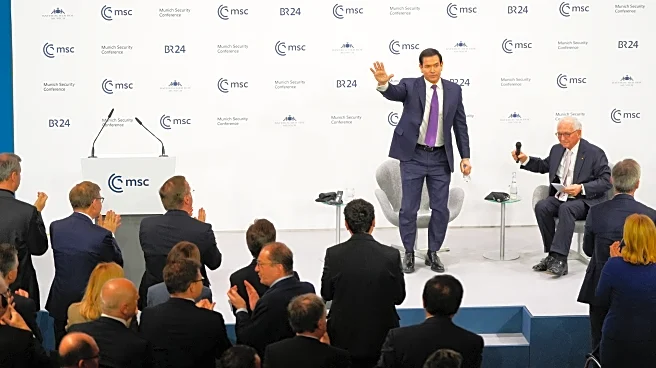Rapid Read • 8 min read
The European Union and the United States have reached an agreement on a joint statement that could potentially lead to a reduction in auto tariffs. This development comes amidst concerns from automakers about the high costs associated with tariffs, particularly those affecting steel and aluminum. The Trump administration had previously expanded tariffs to include over 400 types of products, which significantly impacted the auto industry by increasing the cost of parts and materials essential for vehicle manufacturing. Automakers are hopeful that the new agreement will alleviate some of these financial pressures, allowing for more competitive pricing and improved sales performance.
AD
The reduction of auto tariffs is crucial for the automotive industry, which has been grappling with increased production costs due to expanded tariffs on steel and aluminum. These tariffs have made it more expensive to manufacture vehicles, affecting both domestic and international sales. A decrease in tariffs could lead to lower production costs, enabling automakers to offer more competitive prices to consumers. This could boost sales and improve the financial outlook for companies struggling with tariff-related expenses. Additionally, it may enhance trade relations between the EU and the U.S., fostering a more collaborative environment for future negotiations.
If the agreement leads to a tangible reduction in tariffs, automakers may begin adjusting their pricing strategies to reflect lower production costs. This could result in increased sales and market competitiveness. Industry stakeholders will likely monitor the implementation of the agreement closely, assessing its impact on their operations and financial performance. Political leaders and trade organizations may also engage in further discussions to ensure the agreement's benefits are fully realized and sustained over time.
The agreement could have broader implications for international trade policies, potentially setting a precedent for future negotiations between major economic powers. It may also influence the global automotive market, encouraging other regions to reconsider their tariff strategies to remain competitive. Additionally, the reduction in tariffs could stimulate innovation within the industry, as companies invest in new technologies and materials to capitalize on lower costs.
AD
More Stories You Might Enjoy











